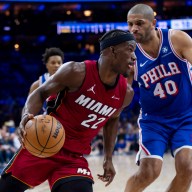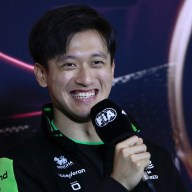Terry Greenland went from a career in aerospace engineering to a career helping the deaf-blind.
When the prospect of an early retirement as a manager in aerospace engineering approached, Terry Greenland jumped ship and plunged into a brand new career.
Greenland said goodbye to an engineering career and hello to the field of social work.
After volunteering with the Children’s Aid Society, where he learned some basic sign language, he enrolled in the deaf-blind intervenor program at George Brown College.
“Like everyone else, I knew there were individuals who were blind, and individuals who were deaf, but I hadn’t considered that there were individuals who were both deaf and blind,” Greenland says.
“I couldn’t begin to imagine what it must be like to be deaf-blind, existing in a world which is dark and silent.
Not to have the use of vision or hearing — the two senses through which we gather most of our information — seemed to me a tremendously challenging existence. I thought that it would be a very worthwhile and rewarding career to become an intervenor and be able to reach out and help individuals who are deaf-blind.”
And so he he did.
As intervenor Greenland acts as the eyes and the ears of individuals who are deaf-blind, providing them with the information and assistance to enable them to connect with the world around them.
He helps deaf-blind individuals learn computer skills that can allow them independent access to information and helps them develop independent living skills, like cooking, shopping, accessing community services, using transit, money management and banking.
Every new skill enables them to become more and more independent.
“In engineering, things tend to be quite structured with formal procedures to be followed, events usually proceed in a very logical fashion with few grey areas — things tend to be black or white,” he says.
But things are not so black or white in his new chosen career.
“In the world of deaf-blindness, often what is logical to one individual is not logical to another. The intervenor should never assume anything about individuals who are deaf-blind, they are all unique.














